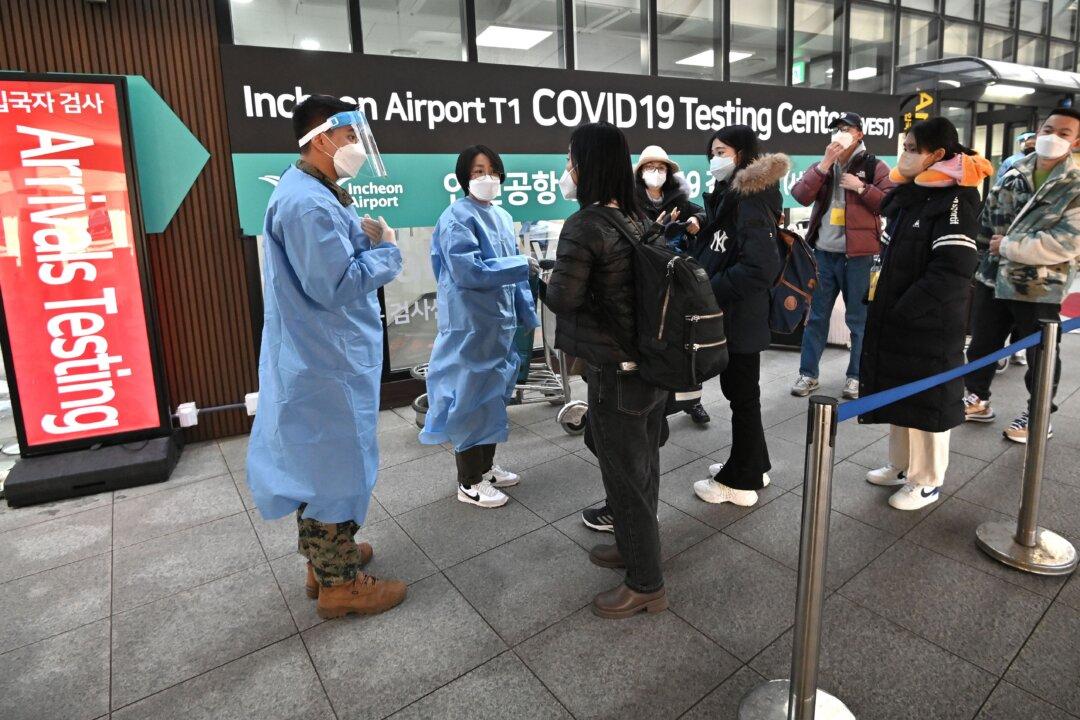South Korea is the latest country to relax its entry restrictions to visitors from China, saying on Feb. 22 that it will no longer require travelers from China to test for COVID-19 after arrival, starting next month.
While the post-arrival testing requirement will be lifted on March 1, South Korea’s pre-arrival testing requirement for Chinese travelers will remain in effect until March 10, according to Kim Sung-ho, a senior official at the Ministry of the Interior and Safety.





